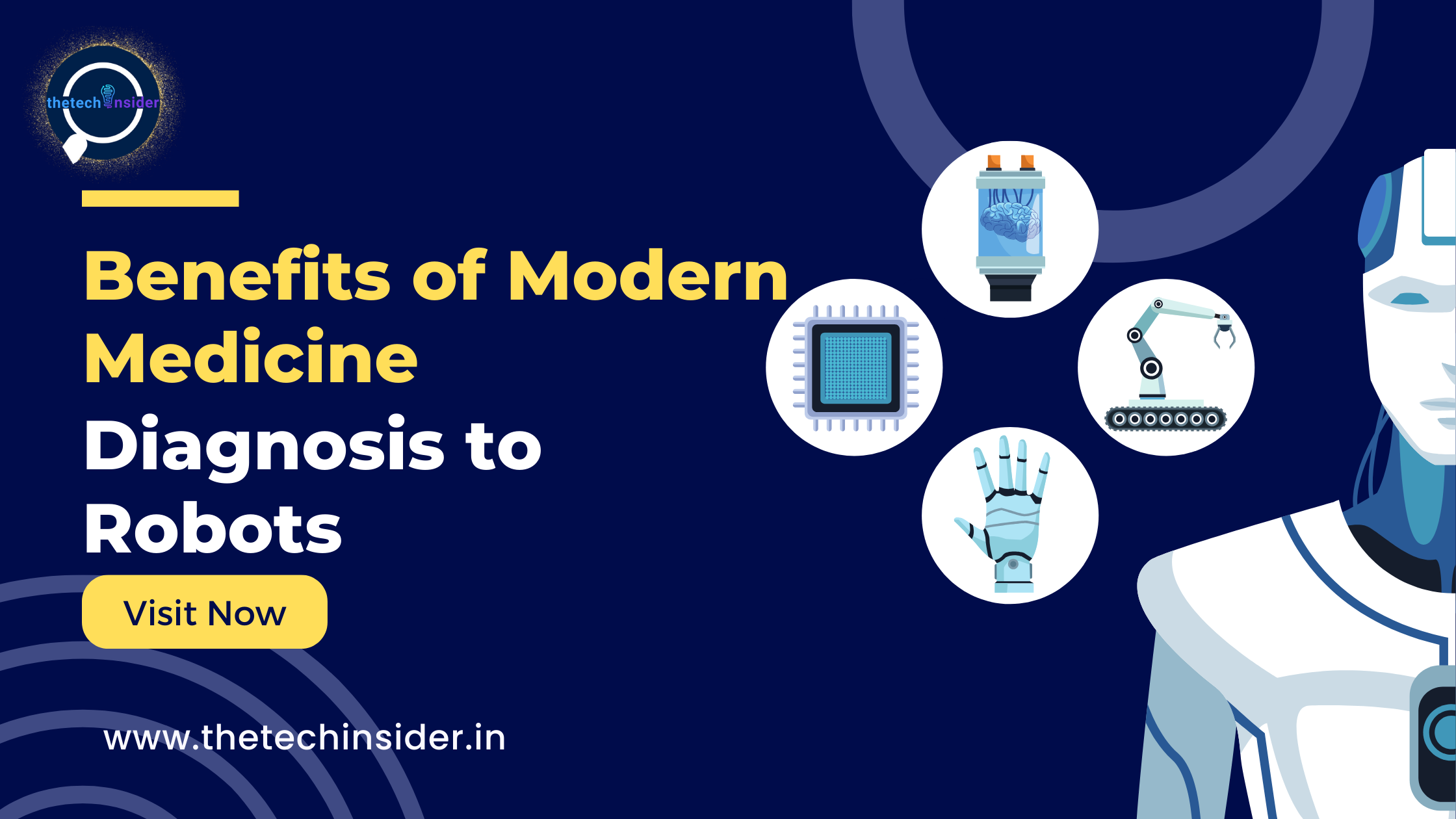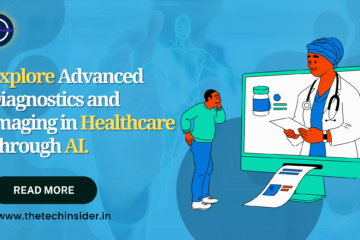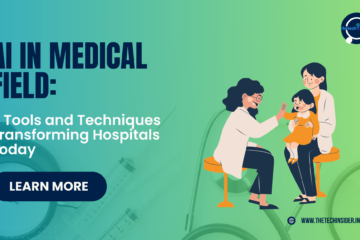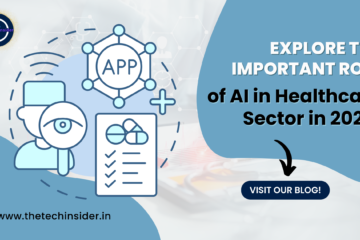Healthcare has been revolutionized by modern medicine, and artificial intelligence (AI) is set to be the next big thing. Hospitals and clinics are quickly integrating this potent technology, which holds the promise of unprecedented advantages in the future for contemporary medicine.
But first, what is artificial intelligence, and how is it affecting healthcare? Let us investigate the many uses of AI in healthcare, as well as the fascinating field of AI diagnostics and the benefits of modern medicine.

Table of Contents
Understanding the Power of AI in Healthcare
Artificial Intelligence (AI) is the ability of machines to imitate human intellect. AI in healthcare analyzes enormous volumes of medical data, including genetic data, imaging scans, and patient records, using sophisticated algorithms. This enables incredibly fast and accurate pattern recognition, risk prediction, and even individualized treatment plan suggestions from AI systems. Let’s delve deeper into the benefits of modern medicine.
Benefits of Modern Medicine: A Brighter Future
The ones that follow are only a few benefits of modern medicine, incorporating AI into contemporary medicine:
- Enhanced Diagnosis: Artificial intelligence algorithms provide unparalleled precision in analyzing medical pictures, such as MRIs and X-rays, identifying any anomalies that a human eye could overlook. This results in earlier and more precise diagnoses, boosting the benefits of modern medicine.
- Better Treatment Planning: AI is able to assess a patient’s genetic makeup, medical background, and present state to suggest the best course of action. Patient outcomes can be considerably improved by this customized strategy.
- Faster Drug Discovery: Historically, the process of developing new drugs has been time-consuming and costly. AI is capable of analyzing enormous databases of medical research to find prospective drug targets and hasten the creation of novel therapeutics, thereby delivering more advanced benefits of modern medicine.
- Robotic Surgery: AI-driven surgical robots are enhancing the benefits of modern medicine by transforming operating rooms. These robots perform less invasive, more precise, and flexible treatments, which helps patients recover more quickly and experience fewer difficulties.
- Predictive analytics: AI can evaluate patient data to identify possible health dangers before they develop into significant issues. This makes it possible to take preventive action, supporting preventative healthcare—a fundamental component of contemporary medicine.
AI in Action: Witness the Transformation
Healthcare is already feeling the benefits of modern medicine due to the effects of AI. Here are a few instances:
- AI-powered skin cancer detection: Skin lesions may be accurately analyzed by AI algorithms, which helps in the early identification of this potentially fatal illness.
- AI-driven chatbots: These virtual assistants free up healthcare workers’ time for more difficult jobs by answering patients’ inquiries, setting up appointments, and even giving basic medical advice.
- Robotic surgery with AI assistance: Artificial intelligence is enabling surgical robots to do intricate procedures with unparalleled accuracy, improving patient outcomes.
The Role of AI in Healthcare’s Future
With all that we’ve seen to date, it is evident that AI technology will only become more prevalent in healthcare as it develops further. What to anticipate is:
- AI will open the door to fully personalized medicine, in which each patient’s demands and genetic composition are taken into account while designing a treatment plan.
- Better management of chronic diseases: AI can assist patients in better managing their health, particularly those with long-term disorders like diabetes or heart disease.
- Expanding responsibilities for virtual assistants: AI-driven virtual assistants may serve as many patients’ initial point of contact, providing basic consultations, triage, and even mental health support.
Challenges in the Road Ahead
Although there is no denying AI’s potential in healthcare, there are some issues to resolve:
- Data Privacy: It is crucial to guarantee the security of patient data. Gaining the trust of patients requires putting strong data protection procedures in place.
- Equity and Accessibility: Everyone should have equal access to AI-powered medical tools. It will be essential to guarantee accessibility and affordability.
- Human Experience Is Still Important: Although AI is a potent instrument, human contact, and medical experience should not be replaced by it. In terms of patient care, physicians and nurses will always be indispensable.
Conclusion: AI – A Partner in Modern Medicine
AI’s incorporation into contemporary medicine offers a very promising future. Healthcare practitioners may enhance patient outcomes by using AI to create individualized treatment plans, make diagnoses that are more accurate, and more. As we advance, our attention should be directed toward legally and ethically utilizing AI’s benefits in healthcare to ensure a time when state-of-the-art technology empowers healthcare for all.
Stay tuned to The Tech Insider for more news on AI’s advancement in healthcare and other relevant fields.




